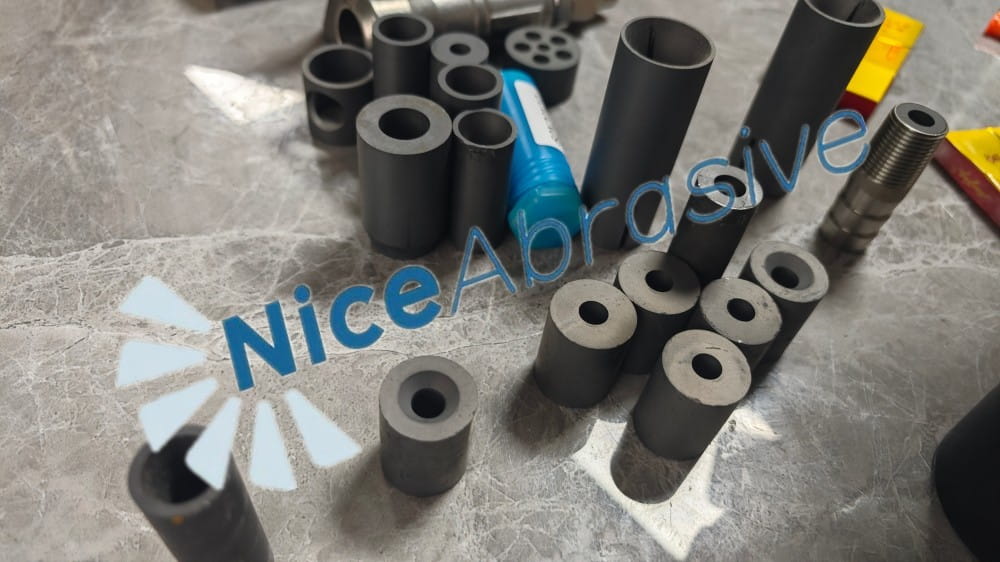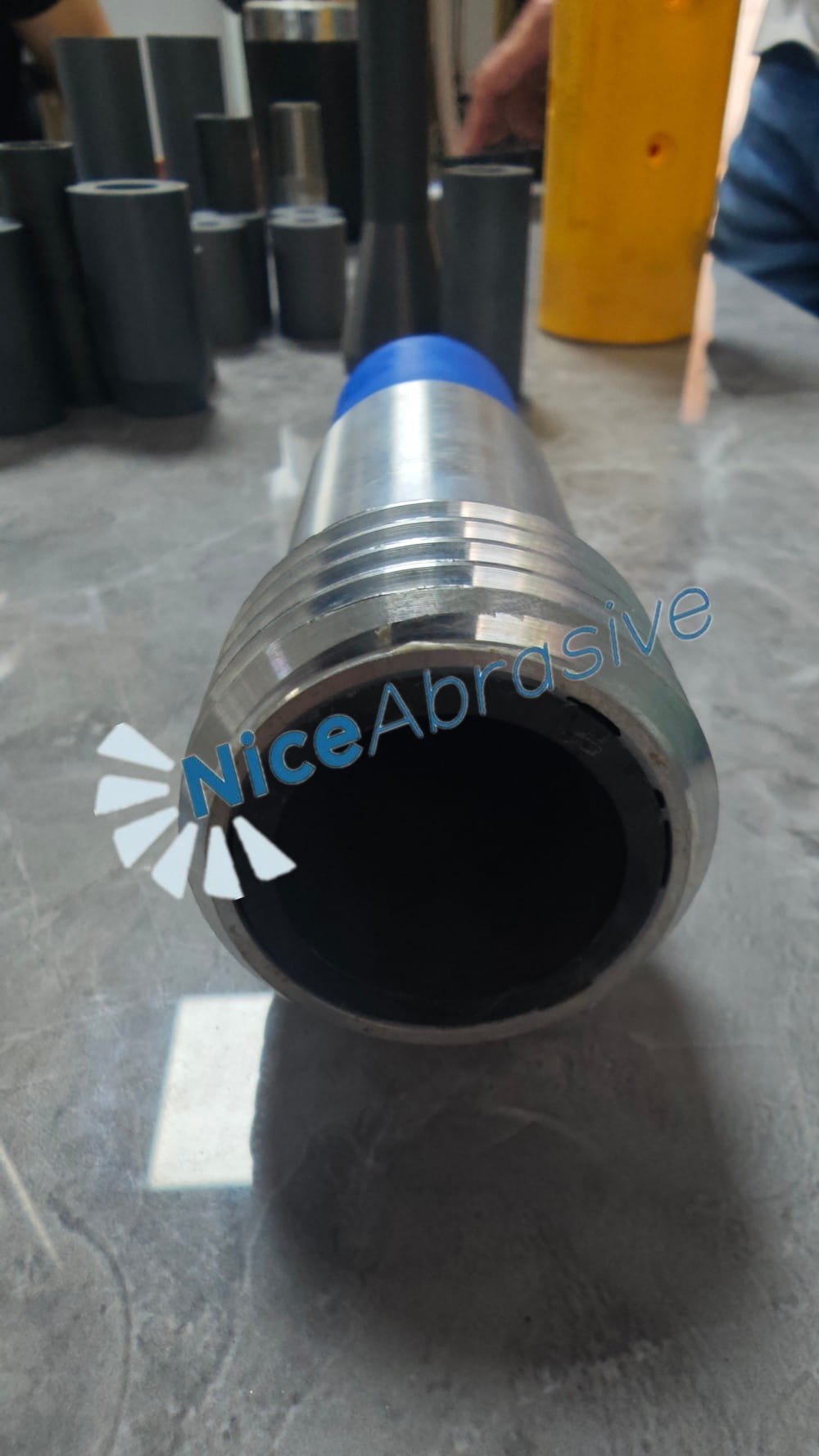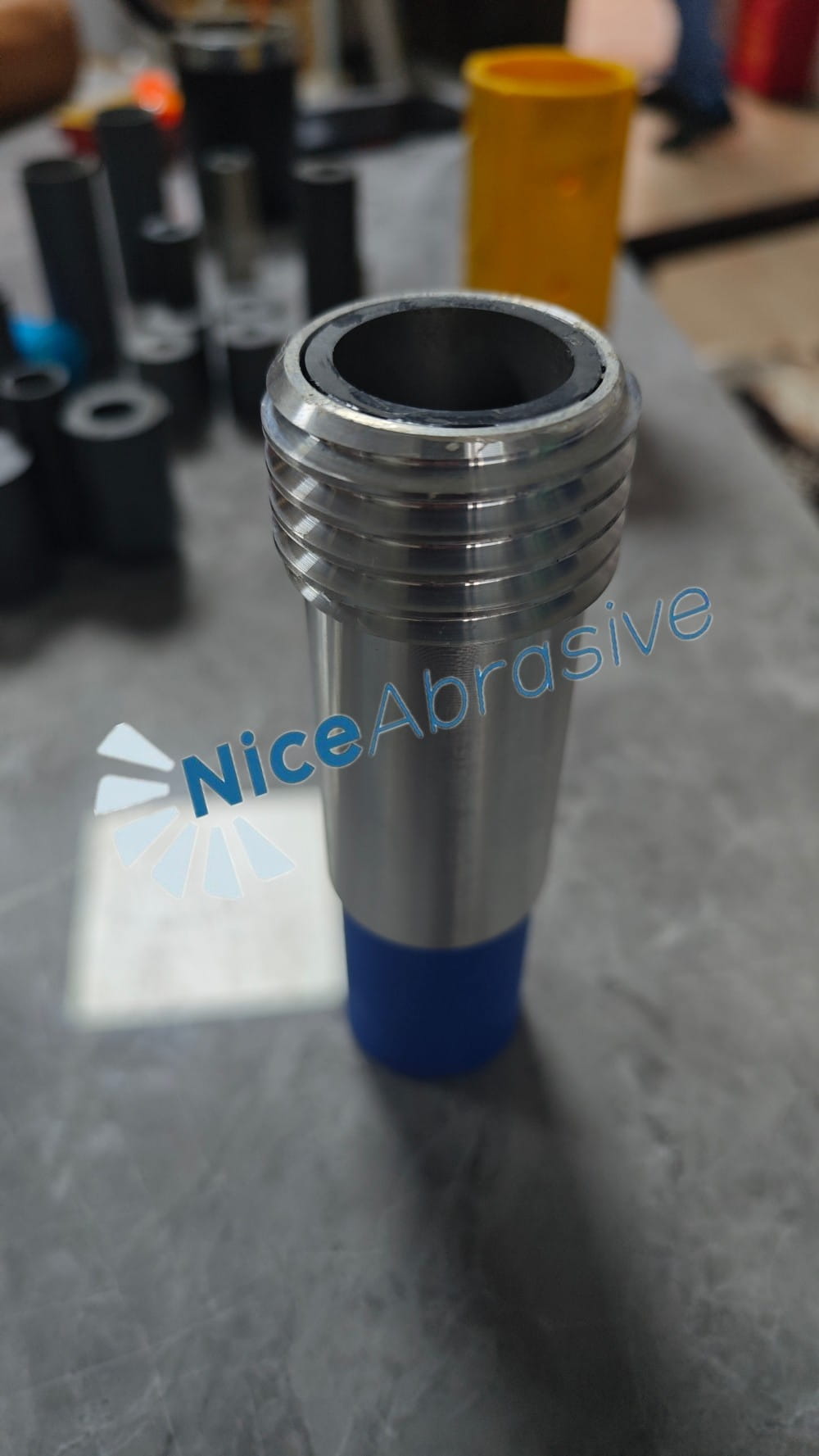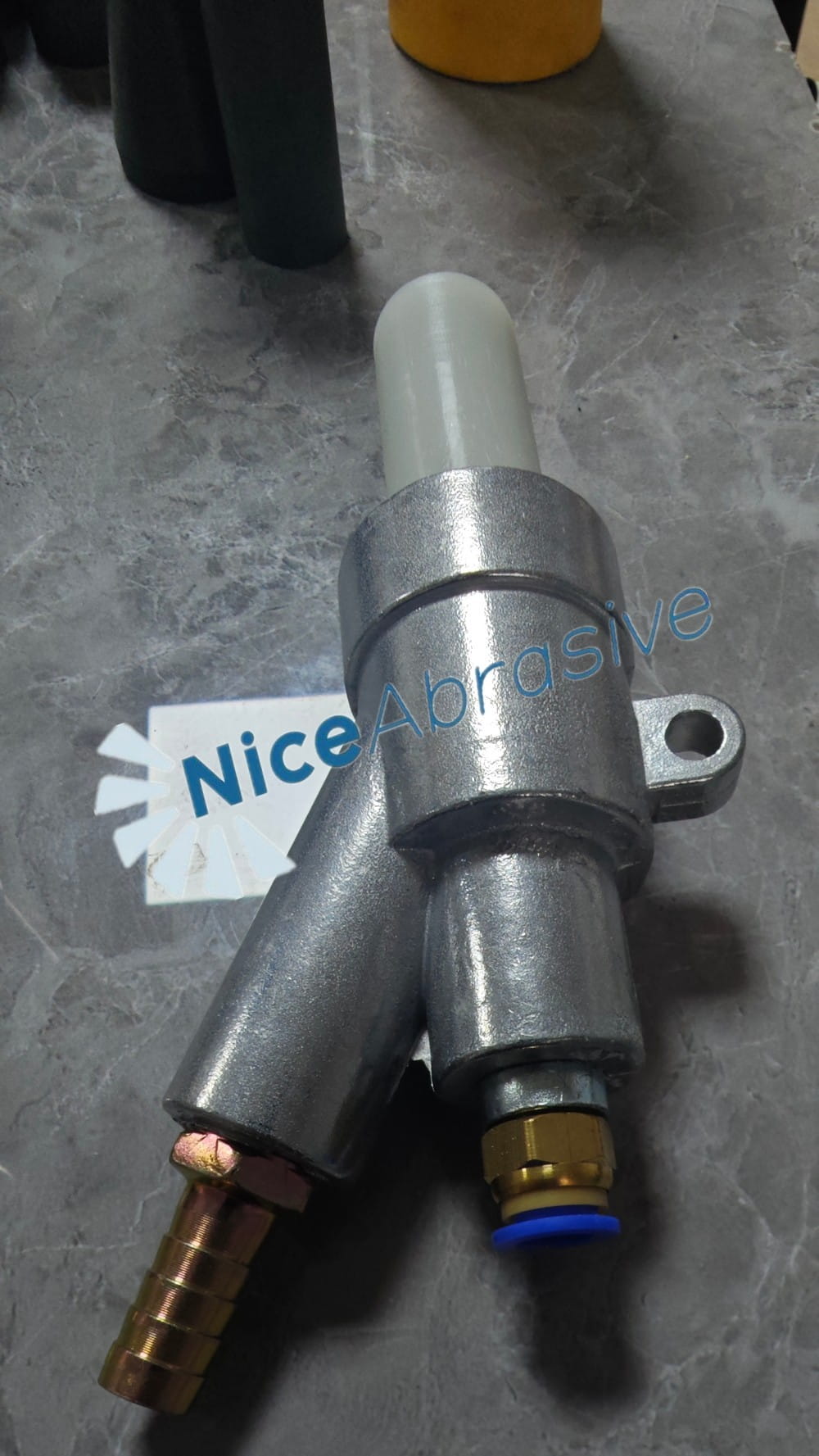Boron Carbide Blasting Nozzles: The Ultimate Guide to High-Performance Abrasive Blasting Solutions

Introduction: Why Boron Carbide is the Industry’s Top Choice
Boron carbide blasting nozzles are engineered for durability, efficiency, and long-term value. Known as one of the hardest materials on Earth—second only to diamond and cubic boron nitride—boron carbide (B₄C) has revolutionized the abrasive blasting industry. These nozzles are favored for high-wear environments where precision and toughness are essential. From shipyards and steel plants to aerospace and semiconductor manufacturing, boron carbide nozzles play a vital role in enhancing surface treatment processes.
In this comprehensive guide, we’ll explore the full capabilities of boron carbide blasting nozzles, their benefits over other nozzle materials, key applications, maintenance best practices, selection criteria, and how they compare to alternative technologies. By the end of this article, you’ll have a detailed understanding of why boron carbide nozzles are a long-term investment in efficiency and performance.
What is Boron Carbide? A Material Defined by Strength and Stability
Boron carbide is a ceramic compound composed of boron and carbon. It features an extremely high Mohs hardness rating of 9.3 to 9.5, making it nearly as hard as diamond. The material is also lightweight, chemically stable, and resistant to high temperatures and corrosion. These properties make it ideal for a range of high-performance applications, including:
-
Abrasive blasting nozzles
-
Bulletproof armor
-
Cutting tools
-
Neutron absorbers in nuclear reactors
For blasting nozzle manufacturing, these features translate into exceptional wear resistance and reduced nozzle erosion, even under the harshest blasting conditions.

The Advantages of Boron Carbide Blasting Nozzles
1. Extreme Hardness Equals Long Service Life
The most significant advantage of boron carbide is its hardness. Compared to tungsten carbide or silicon carbide, boron carbide wears down much slower, allowing blasting professionals to use the same nozzle for extended periods—often 5 to 10 times longer than traditional materials. This durability translates to fewer replacements, less downtime, and lower total cost of ownership.
2. Lightweight for Operator Comfort
Despite its exceptional toughness, boron carbide is surprisingly lightweight. This benefit is particularly important for manual blasting operations, where nozzle weight can contribute to operator fatigue. Boron carbide nozzles reduce strain and support more efficient and comfortable blasting sessions.
3. Highly Resistant to Chemical and Thermal Degradation
Boron carbide resists chemical attacks from abrasive media and can operate effectively in high-temperature environments. Whether you’re using aluminum oxide, garnet, or silicon carbide as your abrasive, boron carbide nozzles will maintain structural integrity and performance.
4. Superior Abrasive Compatibility
The extreme wear resistance of boron carbide nozzles makes them ideal for high-velocity, aggressive abrasives. These include:
-
Aluminum oxide
-
Silicon carbide
-
Steel grit
-
Glass beads
-
Garnet
Its chemical inertness ensures that even the most aggressive materials won’t cause internal erosion, maintaining consistent blast patterns over time.

Types of Boron Carbide Blasting Nozzles and Their Uses
Blasting nozzles are not one-size-fits-all. Depending on the shape, bore design, and application, boron carbide nozzles come in a range of configurations:
1. Straight Bore Nozzles
Ideal for spot blasting and precise surface treatment, straight bore nozzles deliver a focused, high-velocity stream of abrasive. These are commonly used for:
-
Small component cleaning
-
Detail work on metal surfaces
-
Controlled blasting environments
2. Venturi Nozzles
These nozzles widen internally toward the exit point, increasing the velocity of the abrasive stream. Venturi designs offer:
-
Faster surface cleaning
-
Broader blast patterns
-
Higher efficiency with lower abrasive consumption
They’re preferred for large surface areas like ship hulls, steel bridges, and pipelines.
3. Double Venturi Nozzles
An advanced variation of the standard Venturi nozzle, this design further reduces turbulence and wear while increasing blasting speed. Double Venturi nozzles are ideal for:
-
High-production facilities
-
Environments where downtime must be minimized
-
Projects requiring high-speed surface coverage
4. Angle Nozzles
Designed for blasting inside corners or hard-to-reach spaces, angle nozzles feature a 45° or 90° bore design. These are common in:
-
Aircraft component maintenance
-
Complex mechanical assemblies
-
Mold or die restoration
5. Lined Composite Nozzles
These are boron carbide inserts encased in polyurethane, aluminum, or composite shells. The internal lining provides wear resistance, while the external housing protects against shock and external damage. These are standard in industrial-grade blasting setups.

Applications of Boron Carbide Blasting Nozzles
1. Shipbuilding and Maritime Industry
Blasting large metal surfaces is a daily task in shipyards. Boron carbide nozzles resist clogging and erosion from repeated exposure to sand, steel shot, and aluminum oxide. They are especially valuable for:
-
Rust and scale removal
-
Hull preparation before painting
-
Propeller and anchor cleaning
2. Aerospace and Aviation
Precision is essential in the aerospace industry. Boron carbide nozzles are perfect for:
-
Cleaning turbine blades
-
Surface texturing of composite components
-
Removing heat-resistant coatings
3. Automotive and Rail
In vehicle manufacturing and maintenance, boron carbide nozzles are used for:
-
Preparing frames and panels for coating
-
Engine component degreasing and cleaning
-
Underbody rust removal
4. Construction and Infrastructure Maintenance
Heavy-duty abrasive blasting is common in bridge maintenance, road construction, and concrete restoration. Boron carbide nozzles make a difference by:
-
Withstanding prolonged exposure to rough abrasives
-
Delivering consistent blast profiles
-
Requiring fewer replacements in remote job sites
5. Oil and Gas Industry
Corrosion and scaling are major issues in oil rigs, pipelines, and refinery equipment. Boron carbide nozzles resist the harshest abrasives used in:
-
Descaling inside pipelines
-
Cleaning corrosion-prone areas
-
Preparing tanks for repainting or recoating
6. Glass and Ceramics Etching
In the glass industry, boron carbide nozzles are used for fine etching and micro-texturing of delicate surfaces, offering both precision and control. These nozzles enable:
-
Engraving on decorative glass
-
Surface finishing of ceramic parts
-
Micro-abrasive blasting for semiconductor wafers
Selecting the Right Boron Carbide Nozzle for Your Operation
To maximize performance and cost-efficiency, consider these critical factors:
1. Bore Size and Shape
Choose the bore size based on your air compressor capacity. A mismatch can lead to inefficient blasting, clogging, or excessive wear.
-
Smaller bores (3/16″–5/16″): Ideal for light-duty or precision blasting
-
Larger bores (3/8″–1/2″): Suitable for heavy-duty, high-volume blasting
2. Abrasive Type
Ensure that the nozzle material matches your abrasive media. While boron carbide handles most abrasives, matching particle hardness and density helps optimize service life.
3. Blasting Duration and Frequency
If your operation runs multiple shifts or involves frequent use, investing in high-end boron carbide nozzles reduces the need for constant replacement, ultimately saving money.
4. Application Environment
-
Open environments: Prefer rugged, composite-lined designs
-
Indoor booths or cabinets: Straight bore or angle nozzles may offer better results
-
Remote locations: Lighter, longer-lasting nozzles reduce maintenance needs
Maintenance Tips for Long-Lasting Performance
Even the toughest nozzles benefit from good maintenance practices. Here’s how to prolong the lifespan of your boron carbide blasting nozzles:
1. Daily Inspection
Check for signs of bore enlargement, cracking, or uneven wear. Replace nozzles showing deterioration to maintain blasting efficiency and safety.
2. Proper Handling
Although durable, boron carbide is a ceramic and can be brittle. Avoid dropping nozzles or exposing them to mechanical shocks.
3. Clean After Use
Residual abrasive inside the nozzle can lead to clogging or uneven flow. Always flush the nozzle with clean compressed air or mild cleaning solutions after each shift.
4. Use Quality Holders
Install nozzles with quality nozzle holders to reduce vibration and prevent premature wear at contact points.
Cost Analysis: Why Boron Carbide Offers Long-Term Value
Although the upfront cost of boron carbide nozzles is higher than alternatives like tungsten carbide or hardened steel, their extended lifespan results in significant long-term savings.
Let’s look at an example:
| Nozzle Type | Average Cost | Lifespan (Hours) | Cost per Hour |
|---|---|---|---|
| Boron Carbide | $300 | 1,000+ | $0.30/hr |
| Tungsten Carbide | $150 | 100–200 | $0.75–$1.50/hr |
| Steel Nozzles | $50 | 20–50 | $1.00–$2.50/hr |
Conclusion: Boron carbide nozzles offer the best ROI for operations that require high productivity and minimal downtime.
Environmental Impact and Sustainability
Using durable boron carbide nozzles contributes to sustainability by:
-
Reducing manufacturing waste through fewer replacements
-
Lowering energy consumption for frequent production
-
Minimizing hazardous material disposal
In industries pushing for greener operations, switching to boron carbide components supports environmental responsibility.
Future Trends in Blasting Nozzle Technology
As industries evolve, boron carbide technology continues to advance. Current and upcoming trends include:
-
Additive Manufacturing (3D printing) of custom nozzle designs
-
Composite materials that enhance impact resistance without sacrificing wear resistance
-
Smart nozzles with embedded sensors to monitor wear, temperature, and blasting pressure in real time
These innovations are poised to improve productivity and precision in blasting operations worldwide.
Conclusion: Why Boron Carbide Nozzles Are a Smart Investment
Boron carbide blasting nozzles are the gold standard in high-performance abrasive blasting. Their extreme wear resistance, lightweight construction, and superior compatibility with aggressive abrasives make them ideal for industries ranging from aerospace and automotive to oil and gas.
While the initial investment may be higher, the extended service life, reduced downtime, and superior blasting efficiency make boron carbide nozzles a cost-effective and sustainable choice. For professionals seeking reliability, consistency, and long-term value, boron carbide nozzles remain unmatched.
Looking to upgrade your blasting performance? Invest in boron carbide nozzles for consistent results and lower operational costs over time.
